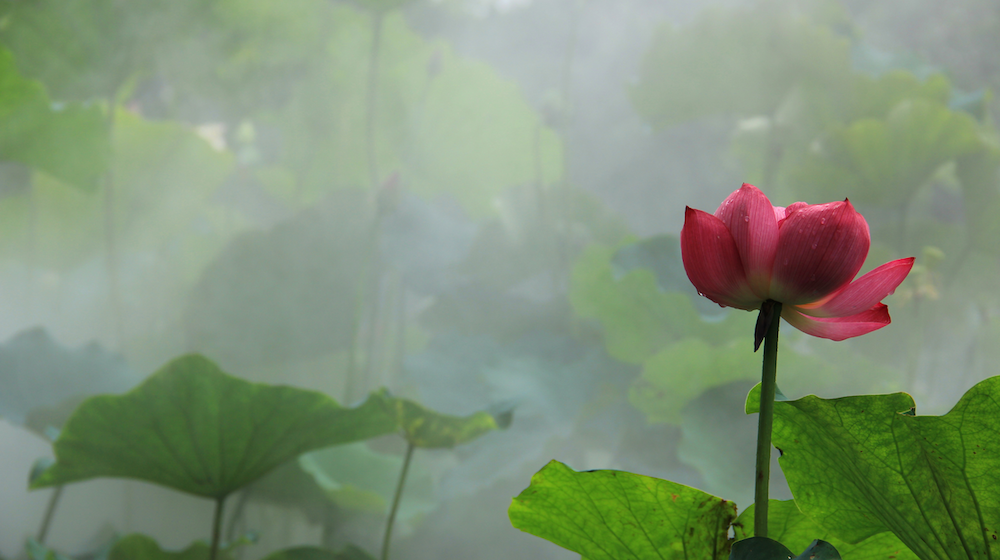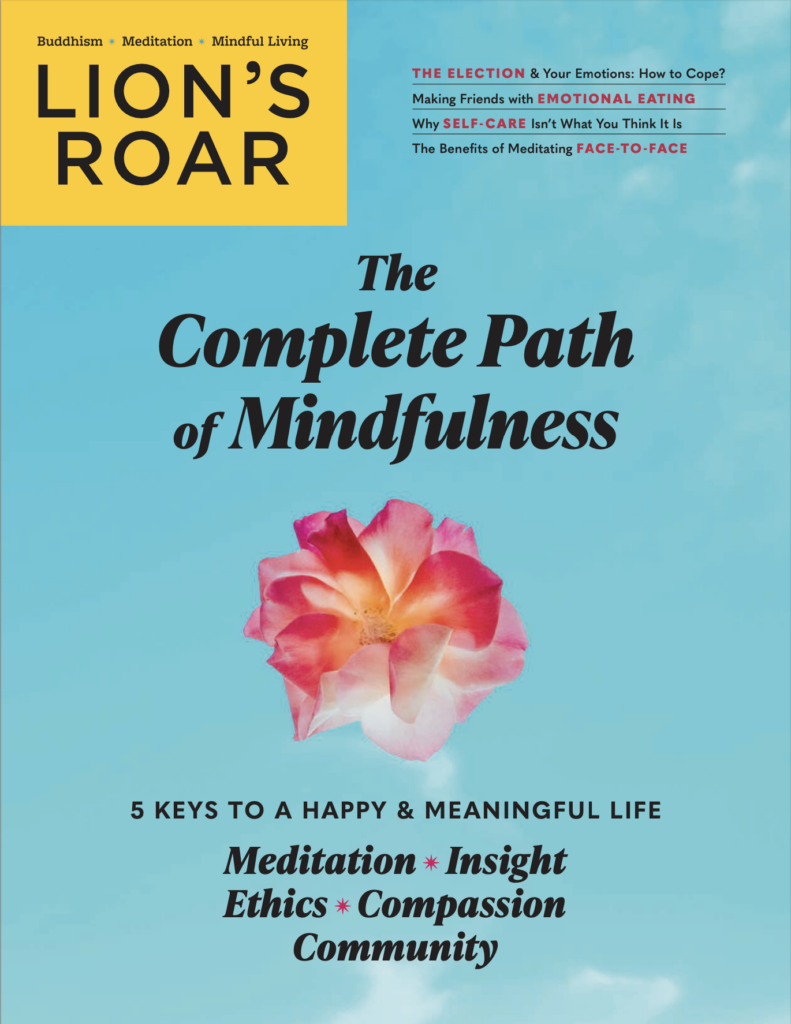MAINSTREAM MINDFULNESS practice typically focuses on techniques to calm, relax, and focus the mind. This can be done by anchoring the attention on the breath or another focal point and letting go of everything else. These practices demonstrably improve well-being and reduce stress.
A good mindfulness teacher will also encourage meditators to use their practice to cultivate positive qualities such as confidence, patience, determination, and kindness. We can refer to the development of relaxation, calmness, and positive qualities as “cultivation practice.”
There is another important side of meditative practice that is underemphasized in mainstream mindfulness. This is the development of insight or wisdom. Using the power of clear observation we develop through mindfulness, we can gain a deeper understanding into the nature of reality and our own being. While cultivation practice does help us feel better, relax, and be better people, it is this insight practice that ultimately liberates us from mental reactivity and suffering.
Insight practice invites us to continually examine what is happening in our mind, facing discomfort to understand our experience and its causes. This demands courage, confidence, and persistence.
As a beginning meditator, I learned to silently label my thoughts “thinking,” “planning,” or “remembering” when they arose. One day, I suddenly realized that all of my thoughts involved planning. Of course, I knew myself to be a planner, but this was a sudden revelation of the magnitude of this force in my life. Further observation showed this way of thinking was intertwined with a constellation of tension, restlessness, and anxiety in my body.
This insight has made me more aware of planning thoughts and their associated physical sensations, helping me to avoid being compulsively driven by those thoughts out of habit. The insight into this pattern reduced its power.
Through the power of self-awareness, there is no limit to what we can discover that leads to greater wisdom. But it is helpful to have some pointers about areas that are ripe for exploration.

One helpful thing to notice is that when an experience is unpleasant or painful we often tense up or have strong aversion, which causes a tightening in the mind and makes an already unpleasant experience even worse.
Conversely, when an experience is pleasant, we might become attached to it, crave it, or worry about losing it, all of which also cause mental constriction. Of course, we might know this intellectually, but paying close attention to this process, which is happening in every moment, can show us how insidious it is in undermining our sense of well-being. Realizing and truly feeling the pain of this process helps us loosen our grip on our preferences, which leads to less reactivity and greater well-being.
Another good place to investigate, which is revealed with even the most cursory inward examination, is how experience is a constantly shifting cascade of thoughts, emotions, and sensations. No two moments are the same, and no experience lasts.
Observation of change can be unsettling initially. Typically, we struggle against this change and thereby create more discontent. Cultivating more stability in the mind acts as a counterbalance to change that allows us to embrace it more fully. This insight is complete when we truly grasp the truth of impermanence and the utter futility of trying to cling to or resist anything in this ceaseless flow.
Society’s usual recipe for happiness is to maximize all that is pleasant in our lives while pushing aside, denying, or suppressing the unpleasant. Unfortunately, it is hard to get conditions so perfect
that we don’t suffer, and when we occasionally succeed, the conditions do not last.
The insight here is that experiences have no lasting satisfaction due to their fleeting nature and because the mind’s desires can never be fully sated. Seeing the futility of this acquisitional paradigm can be destabilizing or even depressing, so we must continue to cultivate well-being to keep the mind in balance. But in the end, the insight that things are not ultimately satisfying frees us from this exhausting project of constant rearranging of our lives to try to get the perfect conditions. It invites us to find contentment in the moment—in theprocess of living rather than the results we seek.
The most elusive and yet most profound insight comes from observing how our usual sense of self creates suffering and struggle. We cling to the self as if it were a fixed, solid thing that must be constantly tended, defended, and satisfied. We can see this in the way we constantly compare ourselves to others, in our desperate need to be seen in a particular way (smart, funny, athletic, etc.), and the fierce defense we mount when our identity feels threatened, like needing to be “right” in arguments.
We all know that this painful self-consciousness and self-preoccupation often fades in wordless moments of beauty in nature, during intimate connection with another being, or when we are fully absorbed in a wholesome activity. These experiences offer us a glimpse into a deeper truth: the sense of self is also constantly in flux. It is a process, not a solid thing, and there is no ultimate satisfaction to be found here.
The renowned meditation teacher Gil Fronsdal suggests that cultivation practice and insight practice must be in balance. It can be discouraging when insight is overemphasized, because many of the insights we have point to the reasons why we suffer. Conversely, if cultivation is overemphasized, then our practice can become an endless self-improvement project, and that doesn’t bring a lot of happiness either.
Cultivation practice and insight practice are mutually supportive. Finding the balance between them is an art, and practitioners who do so will be well rewarded. By combining the cultivation of calm and inner strengths with seeing how the mind constructs suffering, we embark on a more complete and worthwhile path of practice—and life.
This article originally appeared in the Sept 24 Edition of Lion’s Road.

Click here to download the full Sept 24 Edition of Lion’s Road.

